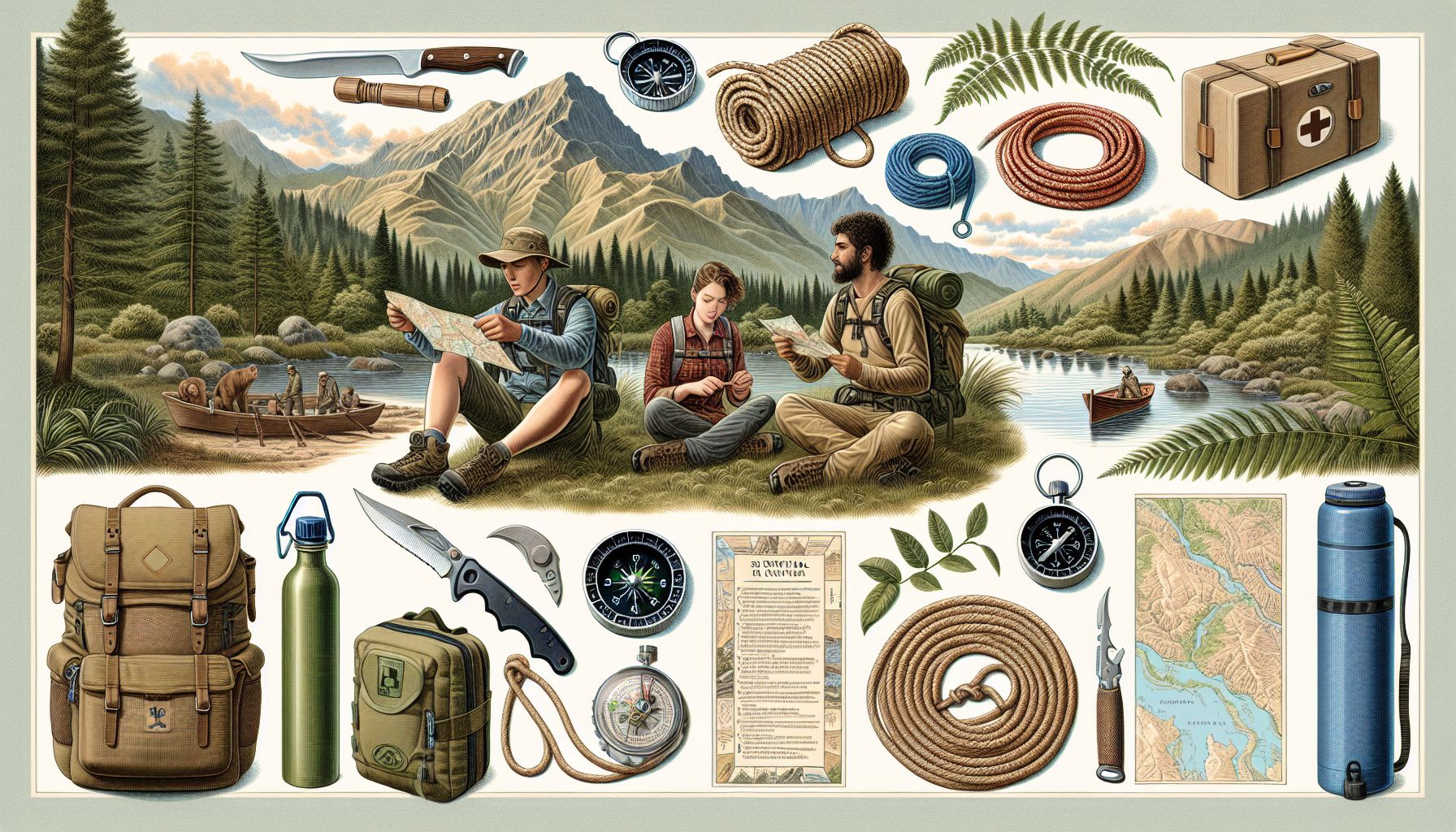Outdoor Survival in the Wilderness: A Guide for Adventurers

Are you an outdoor enthusiast, camper, or explorer who loves immersing themselves in the beauty of nature? Do you enjoy the challenge and thrill of surviving in the wilderness? If so, then this guide to outdoor survival is perfect for you. Whether you’re a seasoned outdoor survivalist or a beginner looking to develop your skills, this article will provide you with essential tips and knowledge to ensure your safety and success in the wild.
Introduction to Outdoor Survival
Surviving outdoors can be both an exhilarating and challenging experience. Being prepared and equipped with the right skills and knowledge is crucial for your well-being. The first and foremost aspect of outdoor survival is understanding the principles of survival: shelter, water, fire, and food. In this article, we will primarily focus on hunting wild animals, growing food organically, and identifying edible foods you can find in the forest.
Hunting Wild Animals
Hunting can be a vital means of procuring food in the wild. However, it requires a deep understanding of the local fauna, their behavior, and survival instincts. For ethical and sustainable hunting, it is essential to abide by local regulations and respect the natural balance of the ecosystem.
When hunting wild animals, it’s wise to acquire knowledge of their tracks, signs, and habitats. Paying close attention to your surroundings and learning to identify these cues can significantly increase your chances of a successful hunt. Additionally, familiarize yourself with different hunting techniques, such as tracking, stalking, trapping, or fishing, to diversify your food sources.
Growing Food Organically
While hunting can provide a valuable food source, it’s always beneficial to supplement it with other means of sustenance. In the wild, growing food organically can be a rewarding practice. For those knowledgeable in plant identification and horticulture, the wilderness can be a treasure trove of edible plants and crops.
By learning to recognize edible plants, you can forage for nourishment without disrupting the delicate balance of the ecosystem. Familiarize yourself with common edible plants, such as berries, nuts, roots, and leaves. However, it’s essential to understand that misidentification can be dangerous, so extensive research or expert guidance is crucial.
Furthermore, consider carrying a small gardening kit that includes lightweight tools for preparing soil and sowing seeds. Utilize fertile areas around water sources and prioritize easily cultivable crops. By incorporating these practices, you can ensure a sustainable and nutritious food supply during your outdoor adventures.
Edible Foods You Can Find in the Forest
In addition to hunting and growing food, it’s important to develop the skill of identifying edible foods while exploring the forest. This knowledge can be invaluable, especially during unexpected situations or when food resources are scarce.
Some common edible foods found in the forest include wild mushrooms, edible insects, and various types of greens. However, it’s crucial to remember that not all mushrooms or insects are safe for consumption. Take the time to study and learn about these species before attempting to include them in your diet.
Moreover, consider learning about natural resources that can provide vital nutrients and supplements, such as plants that offer medicinal properties or herbs for flavoring your meals. A deep understanding of the available resources in the wild will equip you better for survival and self-sustainability.
Conclusion
Outdoor survival in the wilderness requires a combination of skills, knowledge, and respect for nature. Whether you rely on hunting wild animals, growing food organically, or foraging for edible foods in the forest, it’s crucial to be well-prepared and informed.
Remember to always prioritize safety and sustainability. Practice ethical hunting, be aware of local regulations, and respect the balance of the ecosystem. Develop your knowledge of edible plants and focus on growing food organically whenever feasible. By cultivating these skills, you’ll not only enhance your outdoor survival abilities but also foster a deeper connection with the natural world around you. So, gear up, equip yourself with knowledge, and embark on the thrilling journey of outdoor survival in the wilderness!